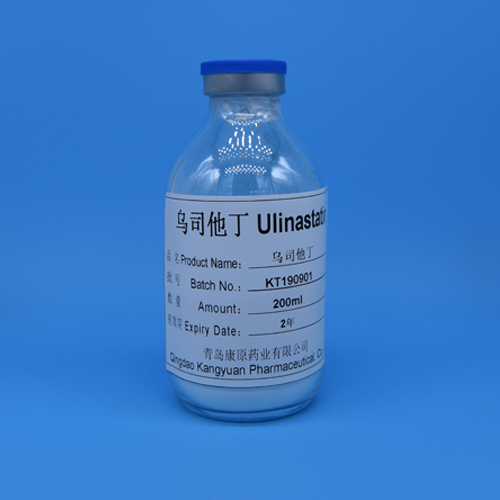Refined glycoprotein extracted from human urine, belonging to protease
inhibitor. It can inhibit trypsin and other trypsin activities, and is often
used in the treatment of pancreatitis. In addition, the product has the
functions of stabilizing lysosomal membrane, inhibiting the release of lysosomal
enzyme and inhibiting the production of myocardial inhibitory factors, so it can
be used in the rescue treatment of acute circulatory failure.
ulinastatin Clinical application and indications
1. Acute pancreatitis;
2. Acute exacerbation of chronic recurrent pancreatitis;
3. Rescue adjuvant medication for acute circulatory failure;

4. Inflammatory factors are important indicators to reflect the severity of
severe pneumonia and the immune response of the body. After the combined
application of ulinastatin, Zheng Xueying et al. found that TNF-, IL-6 and IL-8
levels in children were significantly reduced.
Elastase derived from polymorphonuclear leukocytes (PMN), tumor necrosis
factor (TNF-), and other pro-inflammatory cytokines such as IL-1, IL-6, and IL-8
are closely related: Ulinastatin inhibits the activation of PMN cells,
macrophages, and platelets, reducing the degree of inflammatory cell
infiltration and the risk of local inflammation spreading throughout the body.
In addition, IL-10 is a negative immunoregulatory factor that can directly or
indirectly act on CD4+ /CD8+ lymphocytes, thereby inhibiting their
proliferation. When the inflammatory response is strong, il-10 expression is
inhibited, and the level of IL-10 increases gradually after the inflammation
fades away.
In summary, ulinastatin treatment in children with severe pneumonia has a
relatively high clinical efficacy and can effectively regulate the serum LEVELS
of TNF-, IL-6, IL-8 and IL-10 in children, which is worthy of promotion.